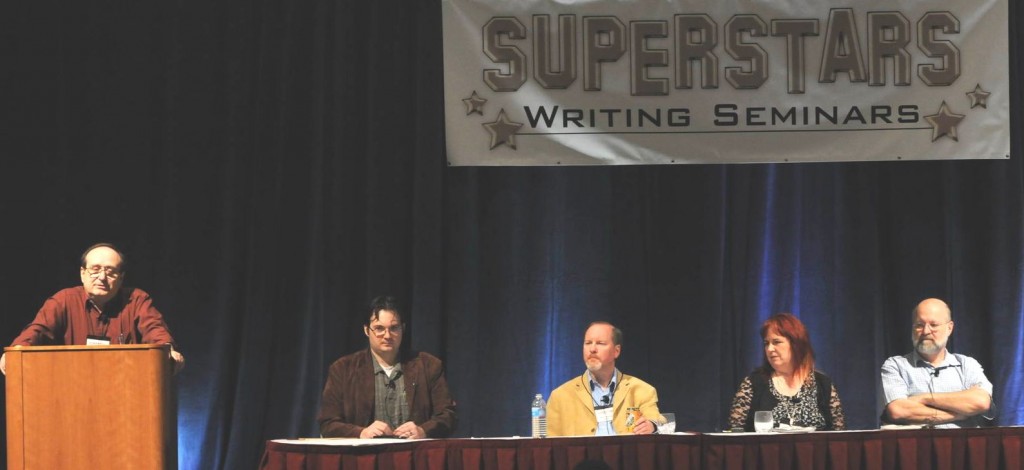So you want to write a scene with a medical element to it. The bad guys have knocked the love interest unconscious, or someone needs to die of an awful disease, or you need to establish that your physician character knows (or doesn’t know) what she’s talking about. But you want to make sure you do it right – not too much detail but enough so that you don’t look foolish. How do you walk that line?
It’s probably easier than you think it is. First of all, big breath – unless you’re actually writing an article in The New England Journal of Medicine you’re probably not going to have to be exact. Readers don’t want verbatim quotes from a medical textbook, but rather details that enhance or propel the story, or help to define who the characters are. That said; you do get points for accuracy, or at least some form of plausibility.
In no particular order, here are some suggestions to avoid common pitfalls when it comes to writing medicine in science-fiction and fantasy
- Nothing is absolute, within reason. There’s no hard and fast rule to state that your medicine has to be accurate, and for many, engaged in world building of alien species or seeing the needs of the plot, being shackled to the rules can limit the creative work. That said, there are always certain things that people will pick up, especially if they have some medical knowledge of their own. The bottom line is that you don’t have to show yourself off to be an expert, but you should be able to use common sense as to when you can fudge it and when you need to do research, or better yet, ask for help.
- Avoid the common errors. That is, there are certain mistakes that are so common that you should just be able to avoid them as a matter of course. Just because people on TV or in movies can get up and keep going after being given CPR, that doesn’t mean you should write it that way. In real life, getting a pulse back after CPR is a rare thing, and if you do, it’s still more likely to lead to a screaming ambulance ride, a breathing tube and an advanced cooling protocol, and a stay in intensive care. Likewise, being hit on the head such that a character loses consciousness is a serious neurological emergency; at best it’s a concussion when they wake up, and at worst there could be serious bleeding inside the head.
- The more crucial the point, the more specific you’ll have to be. This stands to reason; if the medical plot point is minor then it won’t require as much detail in the story as something major. As an establishing fact of your alien’s biology, to say that there are three biological sexes can be a great way to establish difference. If your story depends on that fact for a plot point, you’re going to have to put some thought into how to describe that. It seems simple enough, but it means that if you’re going to trip up anywhere, this will likely be it. Do the research, think about what will or won’t work, and then go for it.
- Alien/fantasy medicine can work best as a variation of what we know. If part of your story hinges on a fact of alien biology, one way to make it plausible is to use the human known version as a template and diverge from that. In “Star Trek”, Vulcans have green blood that is based on copper instead of iron. The writers didn’t just make that up, however; in our own bodies, iron is a key component of hemoglobin, which carries oxygen in our red blood cells by binding its ionic form to oxygen. Copper ions are also used in our body – not for the same purpose, but it’s not a complete leap to suggest that evolution couldn’t use it for an analogy to hemogloblin. Likewise for organ structure or diseases or other biological facts; one way to get started is to vary from a known theme.
- Alternatively, vastly different biology/medicine is better left to the imagination. If you are planning to detail the biology of a species or a race that is vastly different from ours, and you want to make it something completely unrelated to what we know – well, there’s no reason you can’t, but this might be a situation where it’s best to go for less detail instead of more. Getting bogged down into what makes everything so different and alien may end up overwhelming the reader. Better to stick with a few tantalizing details and leave the rest to the imagination without worrying too much about explaining.
- The medicine serves the story, not vice versa. Finally, keep in mind that none of these suggestions trump the basic need for good storytelling, believable characters, and compelling plot. It won’t do you any good to explain your thesis about your alien species sixty-four chromosomes or your brilliant doctor’s ability to transplant anything into anybody if it swamps the fundamentals of good writing. Using medicine or medical characters in a story needs to move the story forward, not get it mired in exposition and detail.
Next – writing a good doctor.



